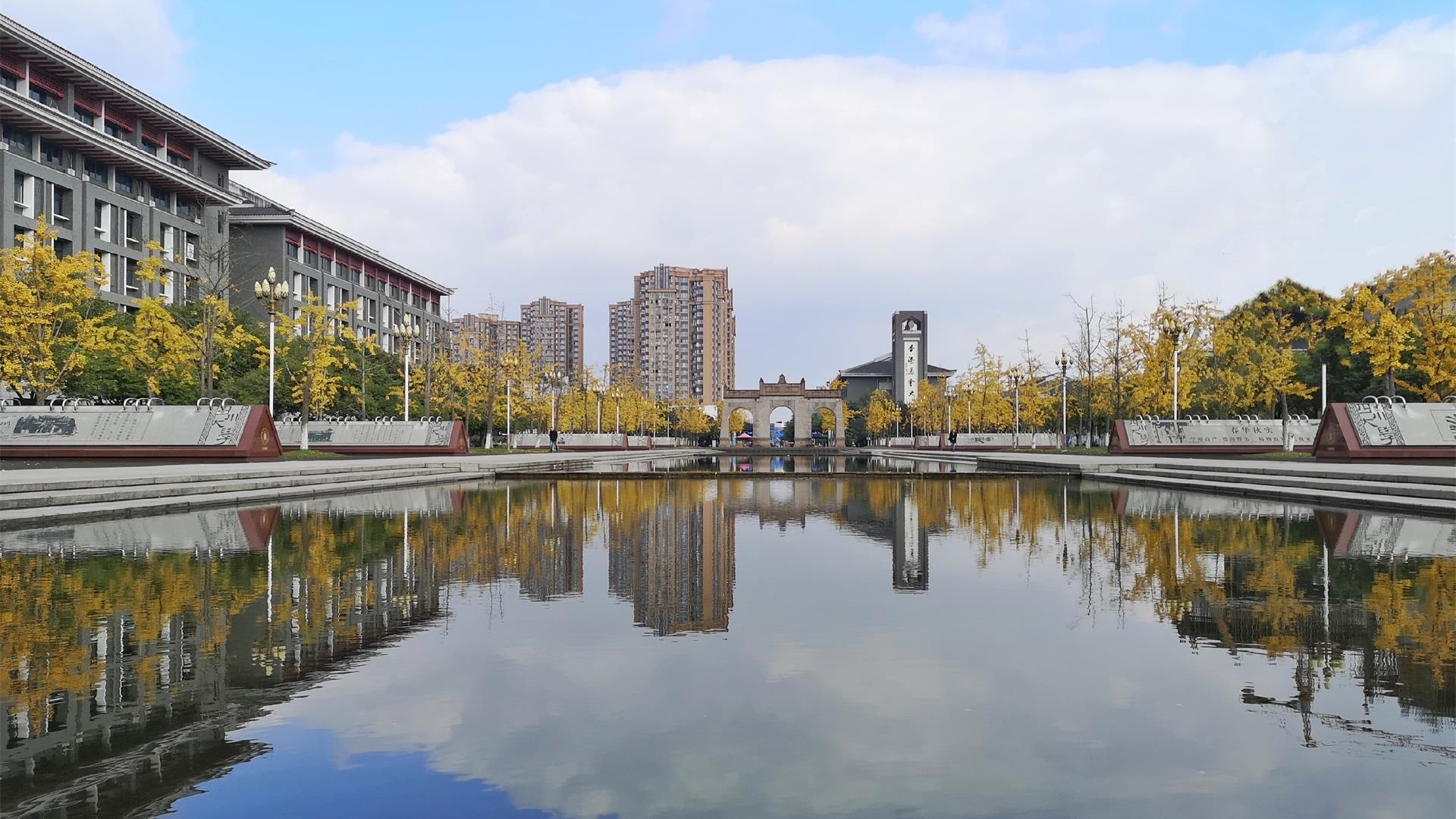In January 2025, Associate Professor Tian Bingwei, Assistant to the Dean of IDMR led a delegation of faculties and students to Nepal for the "2025 Winter Vacation at the International Organizations and Disaster Reduction Strategy and Action Practice Camp" under the "Dachuan Vision" program to conduct a series of research and international exchange activities. They visited the offices in Nepal of the World Health Organization (WHO), the intergovernmental organization International Centre for Integrated Mountain Development (ICIMOD), Mountain Livelihoods Laboratory (MLL), China Foundation for Rural Development (CFRD) and its project sites, Disaster Education Promotion Office (DEPO), Swiss Development Cooperation Organization Helvetas, and the Kathmandu Thamel Tourism Development Committee. Also, they had an opportunity to visit the Nepal National Disaster Risk Reduction and Management Authority (NDRRMA), Nepal Department of Mines and Geology (DMG), as well as the Confucius Institute, Disaster Research Center under the Institute of Engineering, Center for Conflict and Peace Studies, and Crisis Management College at Tribhuvan University (TU).
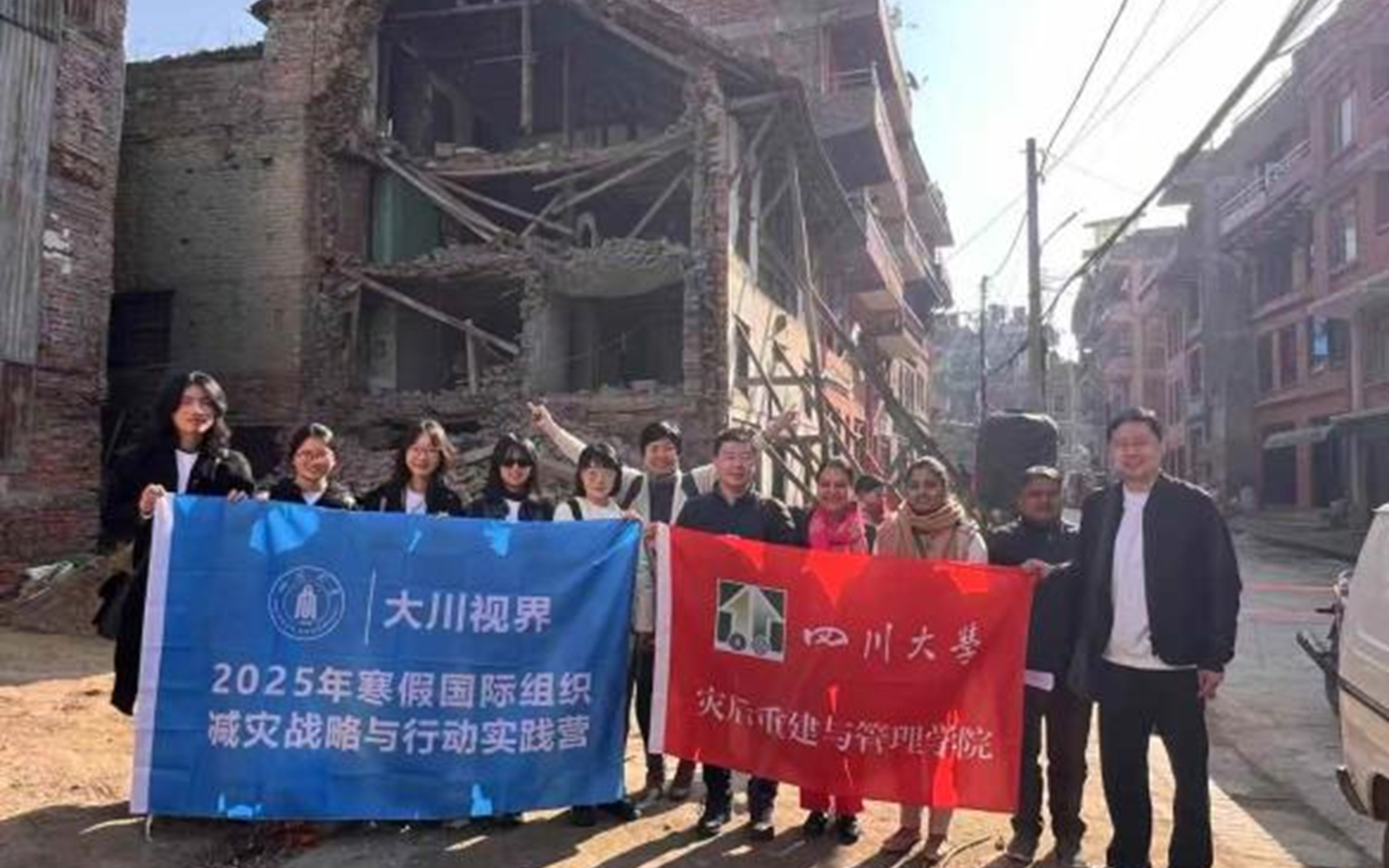
Moreover, in a quest to conduct practical research and academic exchanges, IDMR’s faculties and students met various stakeholders, including Nepal's former Deputy Prime Minister and Minister for Foreign Affairs, the Secretary of the United Nations in Nepal, the head of LRI Confucius Classroom, the head of Bighnaharta Nepal, the Vice-Chancellor for Academic Affairs, the Director of the International Relations Office and Dean of the Faculty of Hospitality and Tourism Management at TU, and the prominent Nepalese media figures.
During the visit, Associate Professor Tian was invited by institutions including the Disaster Research Center at TU and the Nepalese Society of Structural Engineers to deliver an academic report titled "Seismic Resilience: Rapid Response and Post-Disaster Recovery of the Shigatse M6.8 Earthquake," which attracted officials from Nepal's Ministry of Energy, academic leaders, faculty members and students.
The report provided a detailed analysis of the geological background of the Shigatse earthquake on January 7th, 2025, quake data, and the "multi-dimensional advantages" of China's emergency response, including the "Chinese Speed" and "Chinese Technology". This demonstrated the State Grid restoring power within 48 hours, precise positioning using BeiDou Navigation Satellite System (BDS), communication supported by drone-based stations and multi-department collaborative rescue efforts, which drew the attention of participants.
Subsequently, Associate Professor Tian was invited by multiple organizations and delivered five additional academic presentations at NDRRMA, DMG, ICIMOD, Disaster Research Center and Crisis Management College at TU. The report revolved mainly around rapid response to the Dingri earthquake, which garnered widespread attention and support.
Activities during the camp
Jan. 13th 2025: The camp delegation arrived in Kathmandu and was hosted for a welcoming dinner with teams from TU and ICIMOD, as well as media representatives.
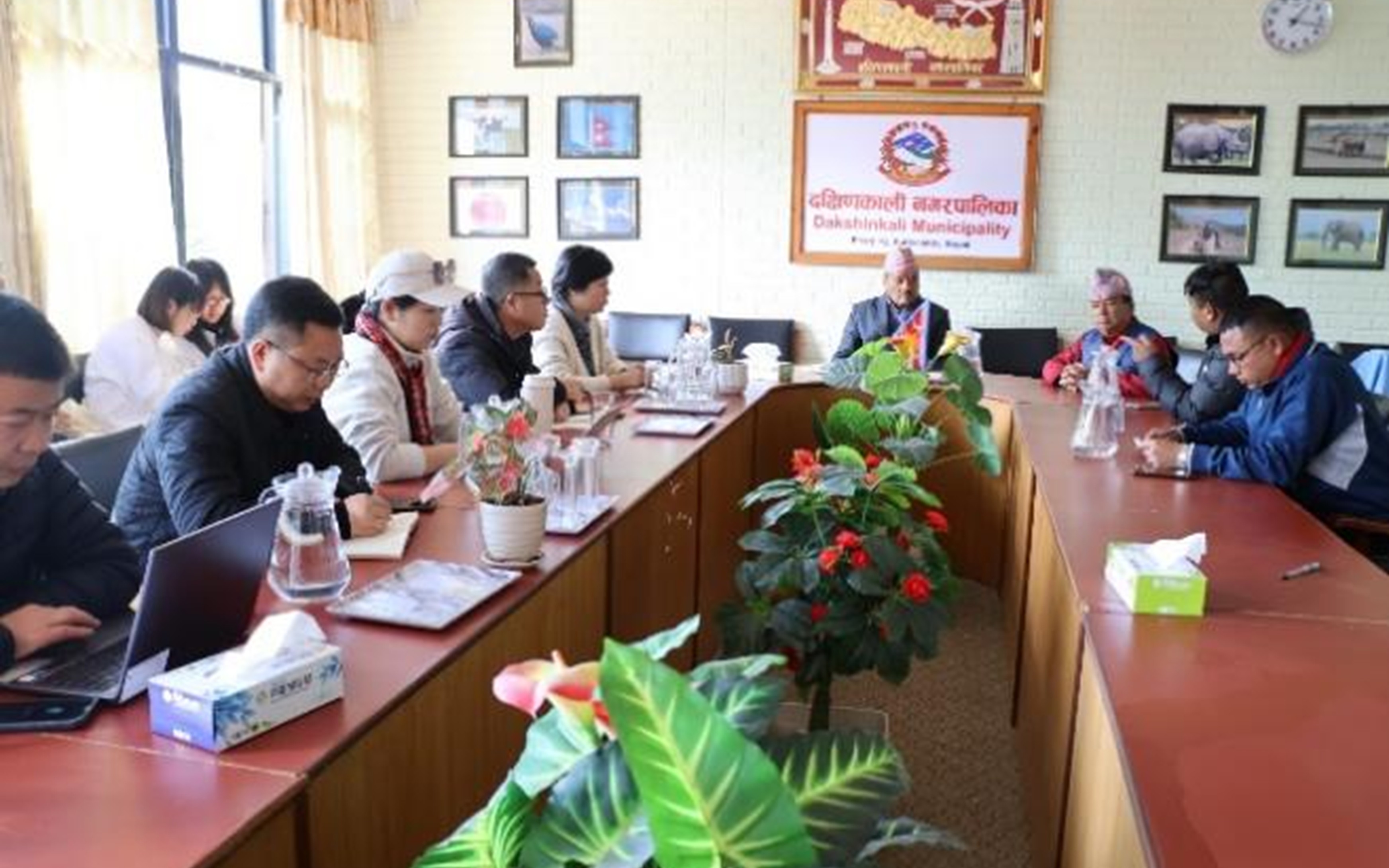
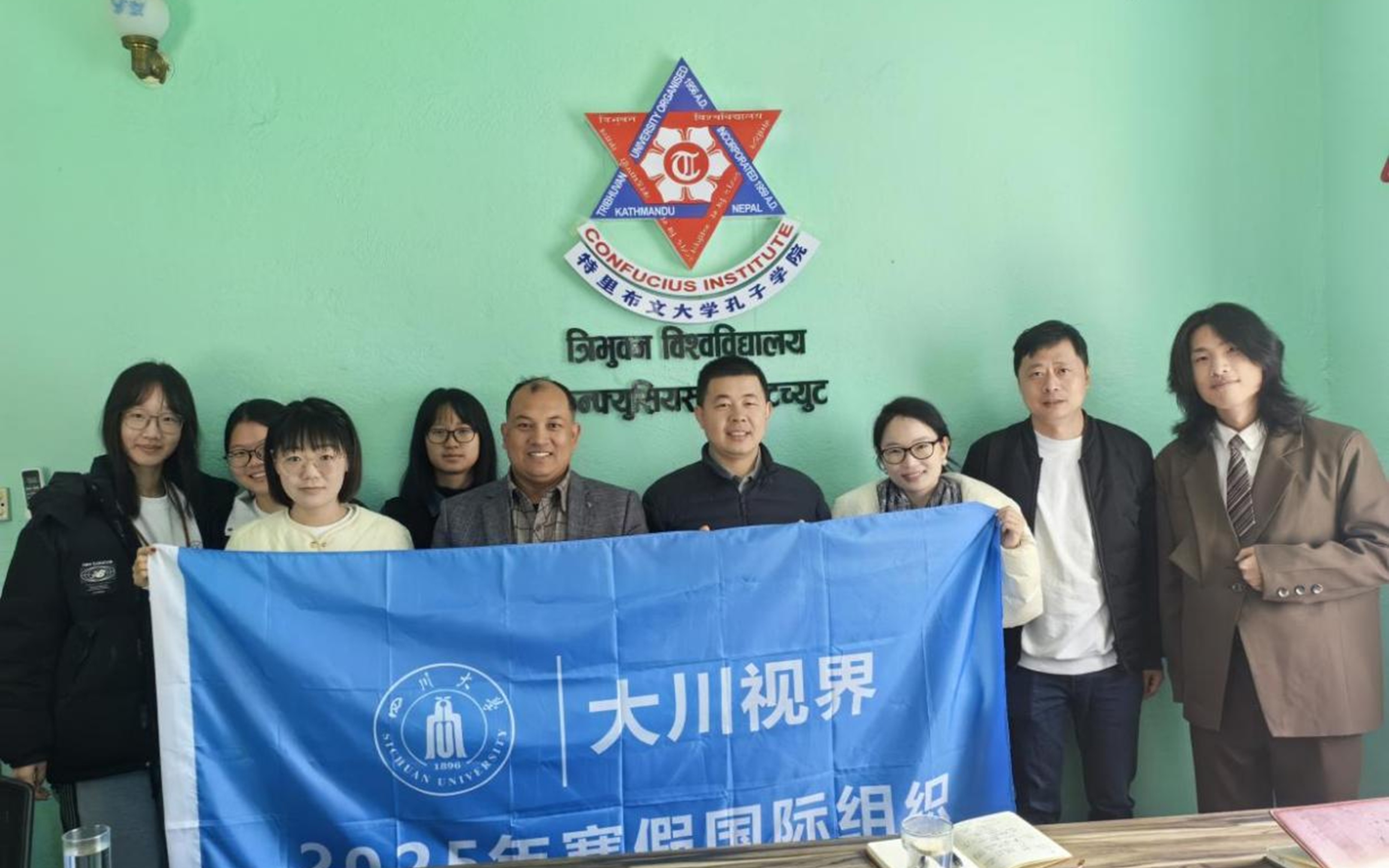
Jan. 14th 2025: The camp delegation visited the Office of CFRD to inspect some of its projects, and held discussions with local government officials at demonstration project sites regarding future cooperation plans. This gave students the opportunity to understand the work of China's overseas agencies. In the afternoon, they were able to visit DEPO to attain experience in disaster education games.
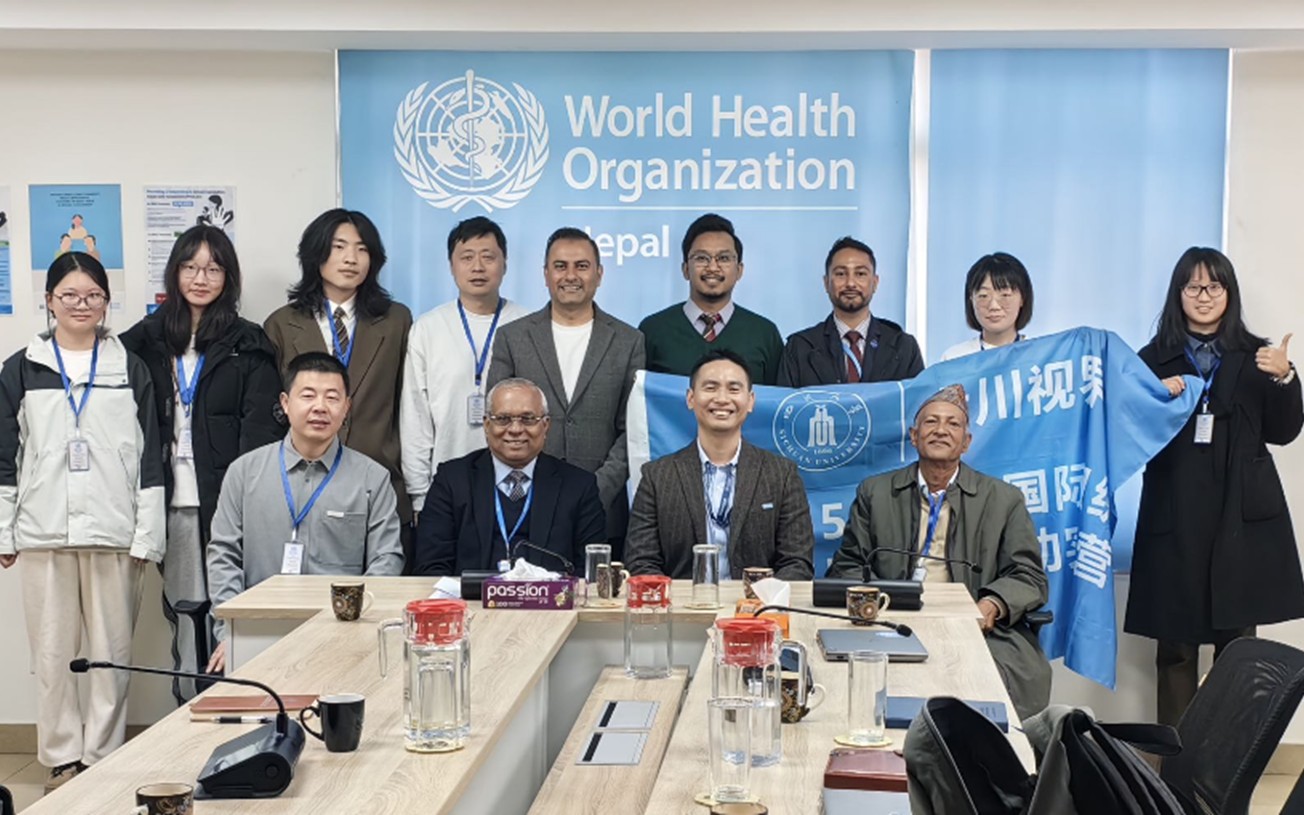

Jan. 17th: The camp delegation went to ICIMOD for student exchanges, delivered presentations, and conducted activities related to the NSFC project on VR-assisted resilient community building. They also had the chance to visit MLL to learn about integrating Nature-based Solutions (NbS) into communities by drawing lessons from successful cases in China and other regions. In the afternoon, they delivered a presentation as well as exchanges at NDRRMA and ICIMOD.
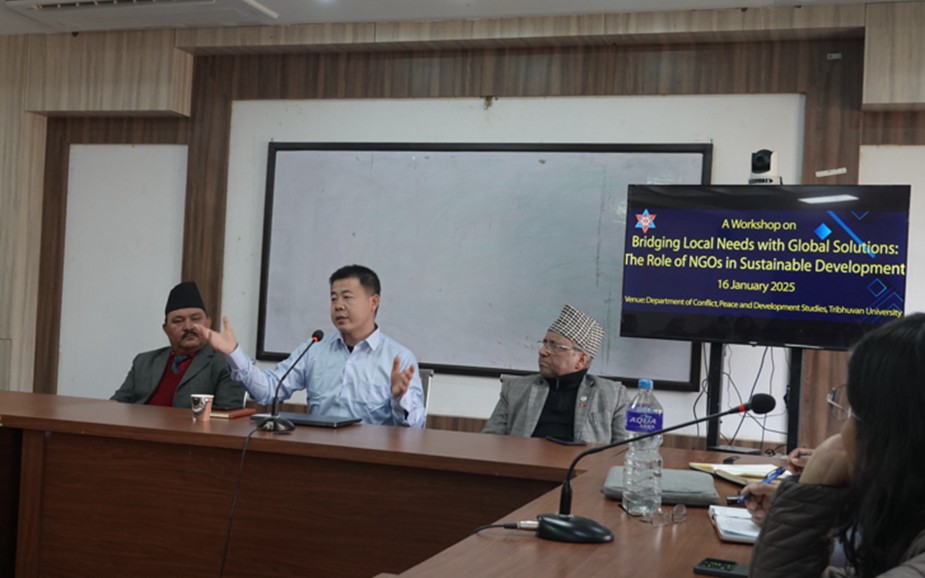
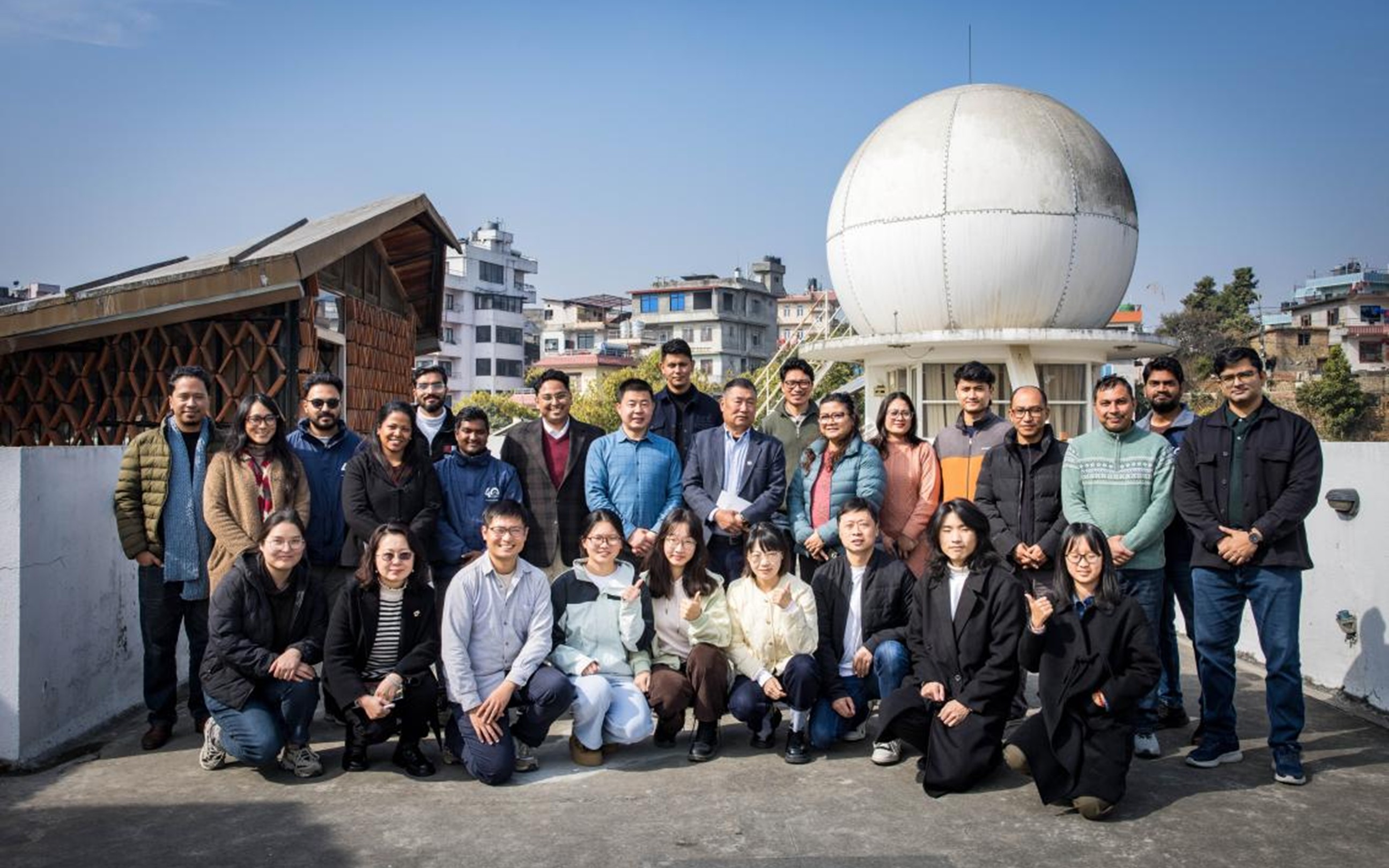
Jan. 18th: Lastly, they met Nepal's former Deputy Prime Minister and Sujata Koirala - Minister for Foreign Affairs, the Secretary of the UN - Nepal Office, the Heads of the LRI Confucius Classroom and Bighnaharta Nepal and many others.
Jan. 19th: The delegation held discussions about community demonstration projects and the 10th-anniversary earthquake event with CFRD and also exchanged views with the head of the LRI Confucius Classroom on the development of domestic institutions in Nepal. Then, they left Kathmandu for Chengdu.
Reflections of participants about the visit and camp
This research and academic exchange trip to Nepal has profoundly made me realize that disaster prevention and reduction rely not only on advanced technology but also on the integration of social resilience, institutional development, and international cooperation. Through in-depth exchanges with the Nepali government, academia and NGOs. Moreso, I learned that despite limitations in technology and resources, Nepal is constantly exploring coping strategies suited to its national context when facing disasters. This made me realize that disaster governance requires exploring more comprehensive and adaptive pathways tailored to the specific realities of different regions. Not only did this research trip enhance my understanding of the importance of international cooperation in disaster reduction, but also it solidified my resolve to delve deeper into the field of disaster prevention and reduction, and ultimately contribute to global disaster response and recovery in the future.
——Sainan Li, 1st-year Ph.D. Student
Associate Professor Tian's presentation entitled "Seismic Resilience: Rapid Response and Post-Disaster Recovery of the Shigatse M6.8 Earthquake" received positive and enthusiastic responses in Nepal. Indeed, this gave me immense pride, especially regarding the application of "China Speed" and "China Technology" in rescue operations as he articulated in the presentation. Thus, I can attest to this as someone who worked and possesses first-hand experience on the Dingri earthquake. The presentation not only demonstrated China's technological strength but also provided valuable experience for Nepal and other countrieswhich inspired me to study harder to broaden my professional knowledge actively participate in disaster reduction practices, and also look forward to engaging in more and future international exchange opportunities.
——Shuang Wu, 1st-year Master's Student
The seven-day trip allowed me to step beyond the limited perspective of a student and understand that the core of disaster reduction lies in local people. The trip to Nepal gave me the most direct sense of the gap between theory and reality, which means that the endpoint of academia must ultimately land back on the earth. The streets of Kathmandu made me realize that the value of technology lies not in its advancement, but in its ability to truly respond to needs. In the meetings, I realized the complexity of disaster reduction cooperation. The Swiss experts emphasized the value of local experience, the Japanese team focused on culturally adapted science popularization, while the Chinese projects prioritized cost reduction and efficiency in their designs, signifying that "respect" is more important than "transformation". The essence of disaster reduction is to ensure that technology touches the earth with human warmth.
——Yihan Chen, Undergraduate Student (Micro-specialty Program, Class of 2023)
The trip to Nepal gave me a deep sense of the country's resilience and order, far exceeding my previous imagination. The architecture was uniquely styled and the people were simple, deeply faithful and contented. The "Belt and Road Initiative” was vividly present here. Despite the difficulties in project implementation, it was full of negotiations and coordination behind the scenes. Nepal is characterized by disaster-prone geography, yet the students' eyes still sparkled with hope. This made me reflect on the importance of post-disaster reconstruction and infrastructure development in my own country, and also have deeper contemplation on the course of reform and opening-up.
——Jialing Dai, Undergraduate Student (Innovation Class, Class of 2022)
During the exchange visits in Nepal, I deeply felt the wisdom and optimism of the local people when facing disasters. They listened earnestly to our experiences and candidly shared their practices, teaching me to maintain humility and openness in cross-cultural dialogue. Additionally, visiting disaster prevention and reduction projects, seeing the implementation of China's poverty alleviation experience in Nepal, and discussing various post-disaster reconstruction cases helped me better understand the significance of cooperation. Despite limited conditions, the simplicity and sincerity of the Nepali people warmed my heart. All in all, this experience and the friendship networks formed will continue to influence and encourage me on my future life journey.
——Yushi Miao, Undergraduate Student (Micro-specialty Program, Class of 2023)
Within just a few days, we visited many international organizations, such as WHO, the Confucius Institute and the China Foundation for Rural Development - Nepal Office. Although these organizations have different philosophies and modes of action, they all contribute to social progress without exception. This experience made me profoundly realize that despite the diverse cultures and backgrounds around the world, humanity's pursuit of a better life is universal. Every organization or individual is adding a touch of warmth and hope to this world in their ways.
——Siyi Wang, Undergraduate Student (Micro-specialty Program, Class of 2023)














